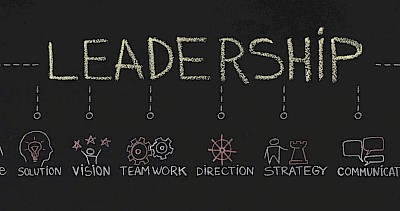
The first 100 days as a leader
The first 100 days as a leader
Starting a new job is not always easy, especially when you take on a management position for the first time. The newly gained responsibility often means a change in professional and personal life. The first 100 days as a manager are particularly important, as this time forms the basis for the future. How do you convince your employees of yourself and your competencies? Which leadership style do you use? What ideas and plans do you have for the future? For a successful start, you must therefore be well prepared and have a clear idea of how you will shape the first months as a supervisor. In this blog article, you will learn how the first 100 days as a manager go, what challenges new managers can expect and how they can master them.
This is what the first 100 days as a manager are like
The first days in your new job or after promotion are demanding, because a lot is expected of you. New impressions, new colleagues or the challenge of settling into a new position in the hierarchy - all this awaits you initially in your new leadership position. In the process, everyone goes through the following phases:
Orientation phase: Getting an overview
The first day of work marks the beginning of the preparation and acclimatisation phase. The new leader finds out in detail about the corporate culture, the goals and the structure of the company. After giving an inaugural speech and communicating their own plans, they get to know all the team members, customers and stakeholders with whom the new manager will have to deal in the future. In this phase it is particularly important to ask questions, listen and observe in order to understand customs and internal processes and to be able to adapt or optimise them later.
Planning phase
After the orientation phase, the first 100 days as a manager are devoted to the actual field of activity in order to be introduced to concrete fields of action. Following a stocktaking and possibly a handover from the predecessor, you will work out a comprehensive strategy to achieve your goals. You should define the goals clearly, measurably and realistically and align them with the company's goals. In this phase you should also plan the resources you will need to achieve your goals.
Implementation phase
The implementation phase is about putting your strategy into action. You should ensure that your staff understand what is expected of them and that they are given the resources they need to complete your tasks effectively. In this phase, you prove that you are able to adapt to unforeseen events and deviate from your planned strategy if necessary.
Evaluation
The first weeks or months are over and the initial projects planned and implemented. Now it is time to review your first 100 days as a leader and to review and evaluate the results of your work. What has worked well? Where are your weaknesses? Where is there still a need for optimisation? Compare your goals with the actual results and adjust your further goals based on this to make sure you are on the right track. Draw consequences from goals that may not have been achieved.
3 common challenges in the first 100 days as a leader
Taking on a leadership position comes with a number of challenges that you need to be prepared for in order to have a successful start as a supervisor. To avoid failure, it is important to know what challenges you can expect:
Overburden
A common problem when starting out in a leadership role is uncertainty and feeling overwhelmed. This is because from one day to the next you suddenly have responsibility for possibly a larger number of employees and the freedom to make decisions that have an impact on the company. It is important that you do not let the feeling overwhelm you, but take time for yourself and relax and regenerate. Set priorities, do not fall into blind actionism and do not devote yourself to all new tasks at the same time.
Conflicts with other managers
Especially in larger companies, you are certainly not the only manager. Especially if the other managers have been with the company longer and do things differently than you do, this harbours a potential for conflict during your first 100 days as a manager. They are not always open to innovations. Try to avoid conflicts by communicating respectfully and professionally. Meet your new colleagues with clarity and appreciation.
Acceptance of employees
Regardless of whether you have moved up within the company and already know your team or you are new to the company - as a supervisor you communicate differently with your employees than with colleagues of the same rank. Not because you are superior, but because your team needs to trust and respect you. It is therefore important to establish open and honest communication in your first 100 days as a manager in order to create a good working atmosphere. Especially when you have risen from colleague to supervisor and you are suddenly superior to your old colleagues, you must first practise your authority. Depending on the company structure and culture, it may be necessary to break out of old habits. In order not to make decisions on a personal level and to be able to assert yourself, you have to build up a certain distance to your colleagues.
Even if you are new to a company, you must first prove yourself and your abilities to your new employees. Especially if you are the successor of a very popular superior, it can be difficult to follow in his footsteps.
The first 100 days as a manager: The right way to deal with your employees & colleagues.
Promote a positive work culture
As a new boss, you will be working with other supervisors and/or subordinate colleagues on a daily basis. In order to keep the potential for conflict as low as possible and to increase productivity to a maximum, a pleasant working atmosphere is of great importance. In order to be able to delegate tasks with a clear conscience, a certain basic trust is indispensable. Therefore, build a good relationship with your employees right from the start and learn how to get the best out of them, encourage them and ultimately move the company forward.
Choose a clear leadership style & apply it consistently
Choosing and applying a particular style of leadership is crucial to creating a positive work environment and successful leadership. A clear and consistent leadership style applied in your first 100 days as a leader can create clarity and safety for your employees, prevent or resolve conflict, foster a positive work environment and culture, and build trust and respect among your employees.
Understand your leadership role & communicate as a leader
Effective communication is an important part of a successful leadership style. Make sure you talk to your staff regularly and give them feedback in one-to-one meetings where appropriate. Think about how to communicate clear instructions and goals and announce changes, and make sure that all questions are answered. Good communication not only helps to solve problems, but also builds trust and loyalty among your staff. Stick to what you say and don't cause confusion with contradictions.
Get to know the team & consider needs
By gaining allies right from the start, for example by revealing one or two personal details in your inaugural speech, you will not come across as unapproachable and can thus build a good relationship with your team. In addition, ask for feedback from your staff.
Dealing with other supervisors in your first 100 days as a manager
As a new manager, you should learn to learn from other managers. Find a mentor who can help you in your work as a leader and whom you can call on for questions and advice. Share your experiences with other supervisors and learn from their successes and failures.
How to manage your tasks in the first 100 days as a leader
What do you want to achieve? Your objectives
As a manager, you should have a good understanding of the company's goals and strategies. Think about how you and your team can contribute to achieving these goals. Ask yourself how you want to tackle these goals right at the beginning. Which projects will you devote yourself to first? What do you want to change about the status quo and what challenges do you want to tackle? With clearly defined and measurable goals, you can track progress and evaluate to what extent you are achieving your goals. Supportively, even before you start your first 100 days as a leader, you can create a checklist that you can use to plan your strategy well and always adjust it.
First things first: Set priorities
As a supervisor, you will have many new tasks to master. To manage your resources effectively, you need to learn to prioritise and consider which projects and tasks need to be done most urgently. Focus on successfully completing these tasks before moving on to new ones.
Conclusion: The first 100 days as a manager
The foundation for a new leader's success is laid in the first three to four months. During this time, new managers go through four phases in which they first get accustomed and oriented before a strategy is planned, implemented and finally evaluated. In order to quickly manage the transition from colleague to supervisor or from unknown to new supervisor, the above tips for dealing with your staff, with other supervisors and for coping with the new tasks from day one can help. Our From Colleague to Supervisor seminar provides in-depth support for your preparation. This way you will be well prepared for the challenges you will face in your first 100 days as a manager.








